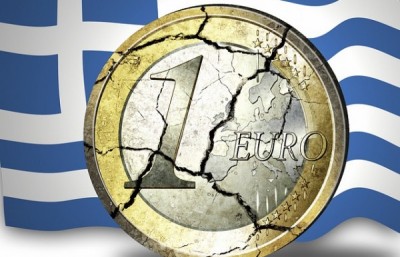The Greek “Bail-out” Program: A Colossal Failure
Part II of a Three-part Series

Read Part I here.
A colossal failure
If we judge the Greek program not on the basis of our own criteria, but on the basis of the goals it set itself and of its predictions, we can safely say it was a gigantic failure, by far the biggest in the history of western leading economic institutions, like the IMF, the EU and the ECB.
In the future, every economics handbook in the world will begin by a chapter under the title “The Greek Bail-Out Program: What Economists must not do in any country”.
The Greek program was launched, supposedly, to help Greece cope with a situation where the “markets” (the international finance) were refusing to lend it, its huge debt considered unsustainable.
In 2010, when the program was launched, Greek sovereign debt was 129% of GDP. Now it is more than 185%. (After the Coronavirus, it will probably be more than 200%.)
The bail-out program not only failed to address the sovereign debt problem, it added to that an equally important problem of a huge private debt, created as a result of the Troika (ECB, EU, IMF) measures. Back in 2010, the non-served loans to banks were insignificant. Now, near half of all loans are not served.
Back in 2010, Greek Banks had about 220-240 bn. euros in deposits. Now they are no longer Greek and have half of that sum.
Back in 2010, Greece was in a much more powerful position vis-à-vis its lenders, which were private banks and funds. Its debt was regulated by Greek law and its national parliament. Disputes related to the debt were under the jurisdiction of the Greek courts. The Greek debt was denominated in Greek national currency, so if Greece left the Eurozone, the Debt would be undervalued as much as the new Greek national currency introduced.
Now the debt is owned by states and international institutions and ruled by British Colonial law, all Greek public property has become a mortgage to the service of the debt, its constitutional protection lifted. Debt related disputes are under the jurisdiction of foreign courts and it is denominated in Euros.
The Greek debt restructuring (PSI, 2011-12), was the first in History undertaken against the interests of the debtor country! They changed the legal status of the debt, while slashing the reserves of Greek pension funds, hospitals, universities etc.
The country has encountered a recession three times bigger than the IMF and the EU were predicting, not to speak of the predictions by the then Greek Finance Minister who was speaking for growth already by 2012. This is why we stated this program was a colossal failure even on its own terms.
The IMF, European Governments, the EU and the ECB use the services of some of the best economists of the world. How it was possible to make such an enormous “mistake”? If it was really a mistake, why did they not correct it and why haven’t they yet?
This is what gives us the right to ask the question if this program was a mistake or, rather, and from the very beginning, a program intended to achieve such a result. The IMF representative in Greece, the Danish Paul Thomsen, a kind of economic hit man and sadistic personality like most of the people who were treating with Greece on behalf of international organizations, has revealed the hidden goals of the program when he stated that Greek salaries had to be somewhere between the Portuguese and the Bulgarian.
By stating that, he inadvertently revealed the philosophy of the EU leaders today. They do not understand the EU as an organization contributing to the improvement of the living standards. They understand the EU as an institution lowering the living standards and social rights of its members.
We want to remind our readers that this program was not imposed on Greece only by Germany and the EU. For its imposition to become possible Berlin had to enter into a tacit alliance with international banks to attack Greece and create the conditions justifying the program. The program was also approved by the IMF, against its own rules and principles. Such a thing could not happen if International Finance and the US administration did not want it to happen. Not to speak about the role of US banks like Goldman Sachs in creating, first of all, the Greek debt bubble and then making it explode.
The result of the crisis was the destruction of Greece, the political capital of Germany and the weakening of Europe on behalf of international Banks and the United States. (The same happened, by the way, during the Yugoslavia crisis in the ‘90s, when the aggressive and imperialistic policy of Germany, Austria and the Vatican greatly contributed to the bloody disintegration of Western Balkans only to rehabilitate US – NATO role in European affairs and destroy for good any prerequisite for a common European Foreign and Defense Policy).
*
Note to readers: please click the share buttons above or below. Forward this article to your email lists. Crosspost on your blog site, internet forums. etc.

